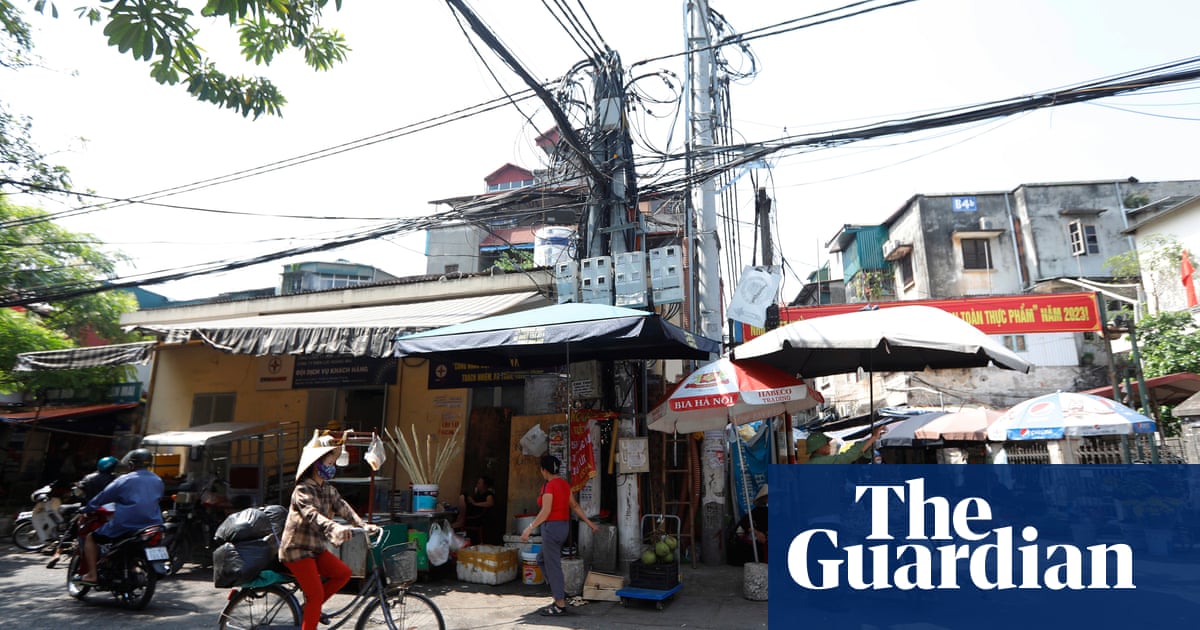

Cities in Vietnam are cutting the use of public lighting to save energy as unusually hot temperatures threaten to stretch the country’s power supplies.
A sweltering heatwave has gripped swathes of Asia over recent months, causing school closures and deaths in India, as well as health warnings across many countries in the region.
Vietnam’s state utility EVN warned this month thatunusually high temperatures could place the national power system under pressure due to a spike in electricity consumption, while water levels at some hydropower dams were lower than normal.
The ministry of industry and trade said energy-saving measures would allow power to be conserved for domestic use and for the country’s crucial manufacturing sector. In the capital, Hanoi, street lights are being turned on 30 minutes later and turned off 30 minutes earlier than usual, the ministry said. Half the street lights along some major thoroughfares and in public parks have been completely turned off.
“Authorities in many provinces and cities have taken measures to save energy to ensure stable and safe electricity supplies,” the ministry said in a statement.
Office buildings and shopping malls in cities, including the tourist hotspot Da Nang, have also been asked halve the energy use of their outdoor lighting systems, while people have been urged to use air conditioning only when necessary and to turn off electronics that are not in use.
Globally, 2022 was one of the hottest years on record, and the past eight years were collectively the hottest documented by modern science. Scientists have warned of higher temperatures to come.
Last week, the World Meteorological Organization (WMO) chief, Petteri Taalas, said the combination of a warming El Niño that is expected to develop in the coming months and human-induced climate change would “push global temperatures into uncharted territory”.
Taalas warned of “far-reaching repercussions for health, food security, water management and the environment”.
The very high temperatures recorded across Asia have prompted fears about a possible drought conditions, as well as causing disruption to education. Earlier this month, the Philippines permitted schools in Quezon City, the country’s most populous city, to shorten their hours due to the extreme heat, while in April at least two states in India ordered schools to close for a week. In May, Malaysia permitted children to wear casual clothing rather than uniform at school during the hot weather, and halted outdoor activities.
Maximiliano Herrera, a climatologist and weather historian who regularly reports record temperatures on Twitter, said the heatwave affecting Asia was “arguably the worst tropical heatwave in world climatic history” in terms of its intensity of temperatures, the its geographical spread and the length of time for it has lasted.
Monthly and all-time records have been broken across south-east Asia, including in Vietnam, where 44.1C was recorded earlier this month at Tuong Duong in Nghệ An province.
Herrera said the extreme temperatures in the region were not over yet. “The worst might have yet to come, at least for some areas like Yunnan [south-west China],” he said.
 Print
Print




